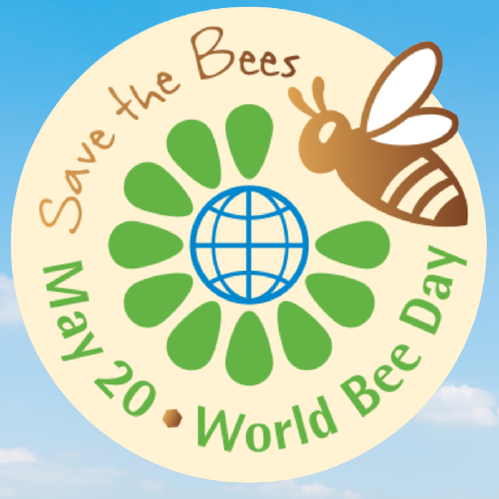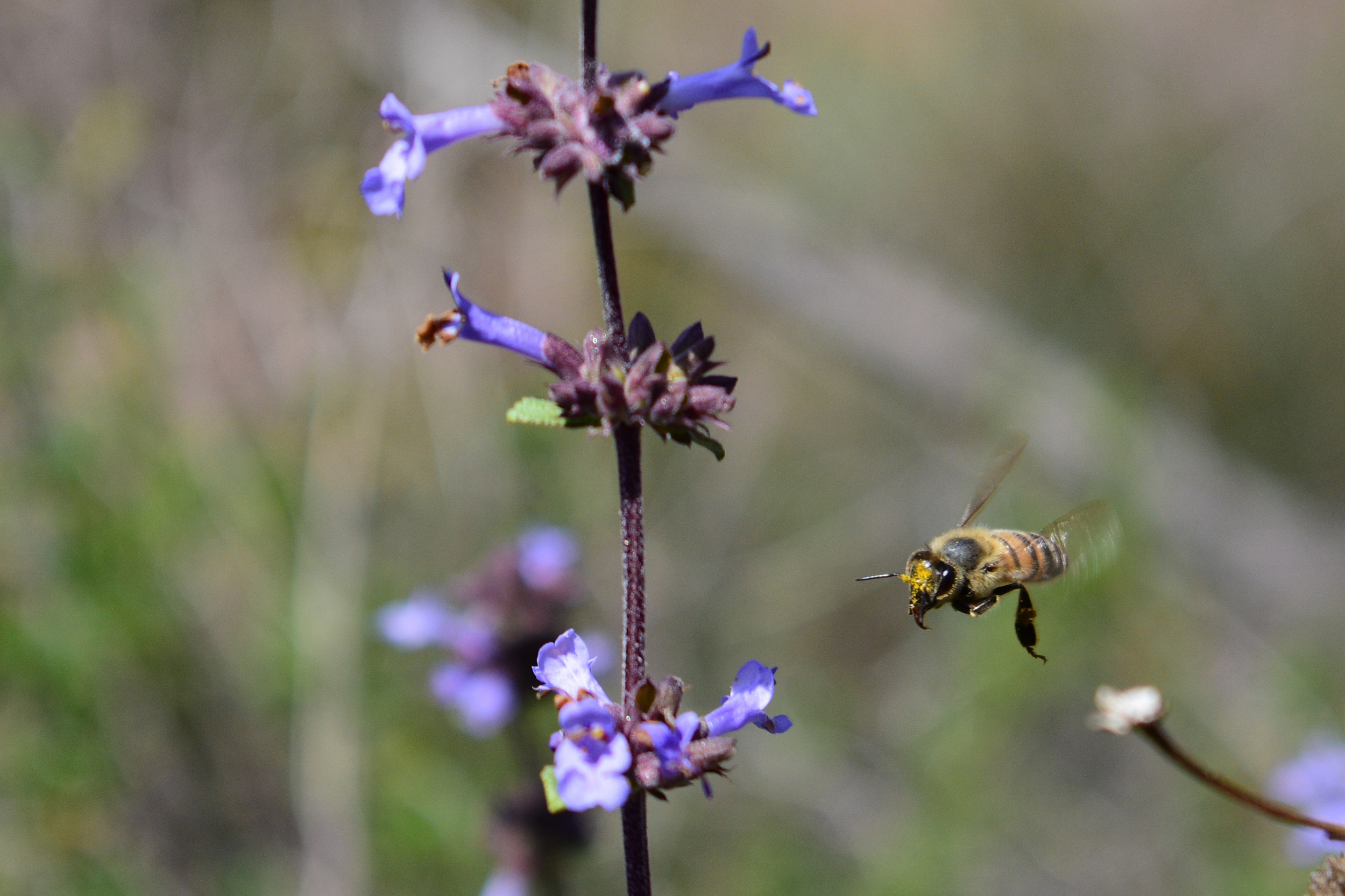#bees
https://youtu.be/eKV7PiRTuSg
Honey Bee Waggle Dance Ask A Biologist
#Bees #Dance #Intelligence #Insects #Aliens #Colony #Honey #Biology
1 Shares
#music #slimharpo #bees
King Bee~Slim Harpo
Well..... Great harmonica playing.
https://www.youtube.com/watch?v=XWLvm11MAaM
6 Likes

#bees #nest
May 29, 2021
CARPENTER BLACK BEE
I had a beautiful, interesting and unexpected visitor today. I didn't know if he was hungry or not. I had nothing to feed him, but I put out a bowl of sugar water just in case.
It was a Carpenter Black Bee. I have never seen or even heard of such a bee before. I looked up his description on the Internet.to discover his identity. He is like a big bumblebee, but all black. Due to the never ending, heavy Downtown construction there hasn't been birds, bees or butterflies for many years. Their habit has been destroyed. To see such a bee is a good sign.
"Carpenter bees are considered solitary bees, which means they tend to live in small nests without a strict social structure or division of labor. However, this does not mean that they live totally alone. They tend to like to nest near others." (Sort of like the high-rise apartment building where I live in. Alone, together.)
Nest Building Time
"Carpenter bees get their name from their preferred nesting area. They like to dig tunnels in wood, particularly weathered and exposed wood." (He was checking out the nesting possibilities of my 1918 building.) Black carpenter bees tend to be most active during the spring and summer months. April and May are particularly noticeable times, as that is when new adult bees move out of their brood cells and begin to establish their own nests."
2 Likes

After many days of cold, windy, rainy days, it's sunny are settled. There are currently around fifty #bees on this plant, which stretches about 1.5 m from discernibly different species. This #bumblebee was the biggest of the bunch which I estimate was a shade under 3 cm in length.
#MyWork #MyPhoto #CCBYSA #DSLR #Nikon #D7000 #Nature #Insects #Pollinator
19 Likes
3 Comments
1 Shares
Very neat effect 😀
https://twitter.com/pinot/status/1395472788534833164
Nothing can block the bee #bees #WorldBeeDay pic.twitter.com/M5Z0Y41PY7
— Pinot W. Ichwandardi (@pinot) May 20, 2021
6 Likes

publicdomainrev For #WorldBeeDay 🐝 some late medieval specimens (ca.1440), from Tractatus de Herbis, a wonderful manuscript from northern Italy made to help apothecaries and physicians identify useful ingredients. .. #bees #medieval #manuscript
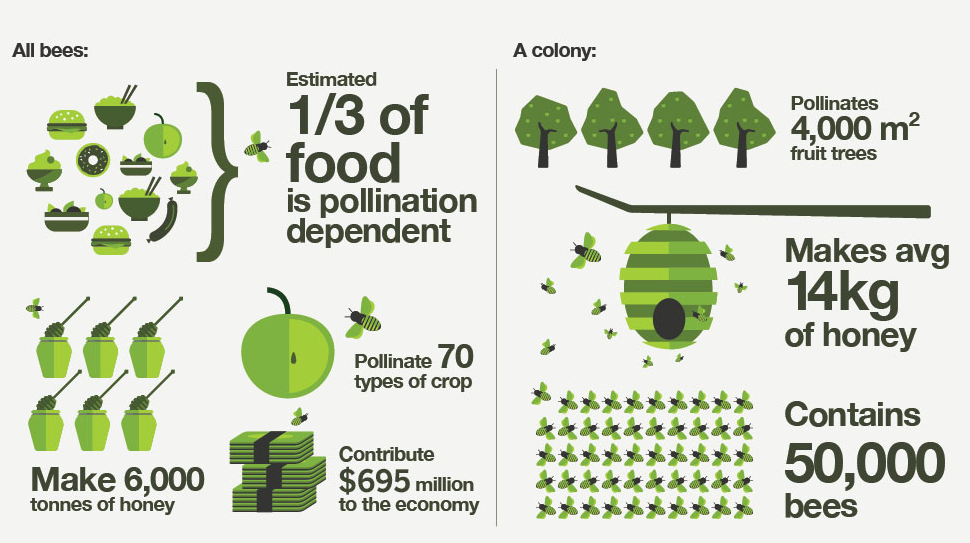
How can we Save the Bees for a Healthy Planet
by S. Garg or letsbekarmic.com
It takes more than soil, water, and sunshine to make the world green. At least 30% of the world’s crops and 90% of all plants require cross-pollination to spread and thrive, and thus this is why bees are our most important pollinators. They produce honey and wax, which are used in countless human products, and pollinate hundreds of crop species. Unfortunately, the bee population around the world is on the decline. so we need to save the bees before it’s too late. we all should take tangible actions to protect this best pollinator of the world. […]
#bee #bees #pesticide #health #organic #pollution #pesticide #facts #article #nature #earth #garden #insect
8 Likes
1 Comments
2 Shares
15 Likes
2 Comments
1 Shares
15 Likes
2 Shares

Hummel auf Löwenzahn / Bumblebee On Dandelion
an der Reinhausener Straße in Mühlenberg (Rheinhausen-Friemersheim), April 2021
#Hummeln #Rheinhausen #Niederrhein #Friemersheim #Insekten #Duisburg #foto #photo #fotografie #photography
#animals #protostome #arthropod #insects #pterygota #neoptera #hymenoptera #bees #bumblebees
One person like that
#eyeopening #insightful #listen
https://www.youtube.com/watch?v=glwT7YS8KMo
#biospherecollapse #disastercapitalists #control #pacify #polarise #pollute #climateengineeringpollution
" #geoengineering " " #solargeoengineering " #weathermanipulation #weatherwarfare " #climatechange " #extinction #headinthesand #denial #delusion #societaldelusion #nopolinatorsnopeople #bees #aluminum #aluminium #altzheimers #dementia #bookburning #brainburning #thosewhoforgethistory #thegreatreset #moreleaches
... and what's more, it's all unecessary.
and people wonder why i have #stultophobia, amidst this insane asylum of dangerous idiots, accelerating #eccocide.
#danewigington #environment #technology #government
#wakeup #weareinalotoftrouble
but we're not doomed yet. we can still mend this.
1 Comments
One person like that
We haven't seen a quarter of the known bee species since the 1990's
Bees feed us. Many of the 20,000 species pollinate 85 percent of food crops and fruits around the world—everything from garlic and grapefruits to coffee and kale.
But, it seems, these crucial insects aren’t doing very well. A study published today in the journal One Earth reveals that in recent decades, the number of bee species reported in the wild has declined globally. The sharpest decrease occurred between 2006 and 2015, with roughly 25 percent fewer species spotted—even as sightings by citizen scientists were increasing rapidly.
The Camelia Sasanqua sharing its pollen with a bee is an old one of mine from our back garden
1 Shares

Hummel auf Distel / Bumblebee at thistle
am Meerfeld in Bergheim (Rheinhausen), Juli 2020
#Hummeln #Rheinhausen #Niederrhein #Bergheim #Insekten #Duisburg #foto #photo #fotografie #photography
#animals #protostome #arthropod #insects #pterygota #neoptera #hymenoptera #bees #bumblebees
One person like that

Biene auf Distel / Bee at thistle
am Meerfeld in Bergheim (Rheinhausen), Juli 2020
#Bienen #Rheinhausen #Niederrhein #Bergheim #Insekten #Duisburg #foto #photo #fotografie #photography
#animals #protostome #arthropod #insects #pterygota #neoptera #hymenoptera #bees
One person like that

Hummel an Brombeerblüte / Bumblebee on blackberry blossom
am Friedhof in Mühlenberg (Rheinhausen-Friemersheim), Juni 2020
#Hummeln #Rheinhausen #Niederrhein #Friemersheim #Insekten #Duisburg #foto #photo #fotografie #photography
#animals #protostome #arthropod #insects #pterygota #neoptera #hymenoptera #bees #bumblebees
One person like that

Bienen und Hummel an Brombeere / Bees and bumblebee on blackberry
am Friedhof in Mühlenberg (Rheinhausen-Friemersheim), Juni 2020
#Bienen #Rheinhausen #Niederrhein #Friemersheim #Insekten #Duisburg #foto #photo #fotografie #photography
#animals #protostome #arthropod #insects #pterygota #neoptera #hymenoptera #bees
One person like that

Hummel an kleinen lila Blüten / Bumblebee on small purple flowers
am Löhkenweg in Traar (Krefeld), Mai 2020
#Hummeln #Krefeld #Niederrhein #Traar #Insekten #foto #photo #fotografie #photography
#animals #protostome #arthropod #insects #pterygota #neoptera #hymenoptera #bees #bumblebees
One person like that
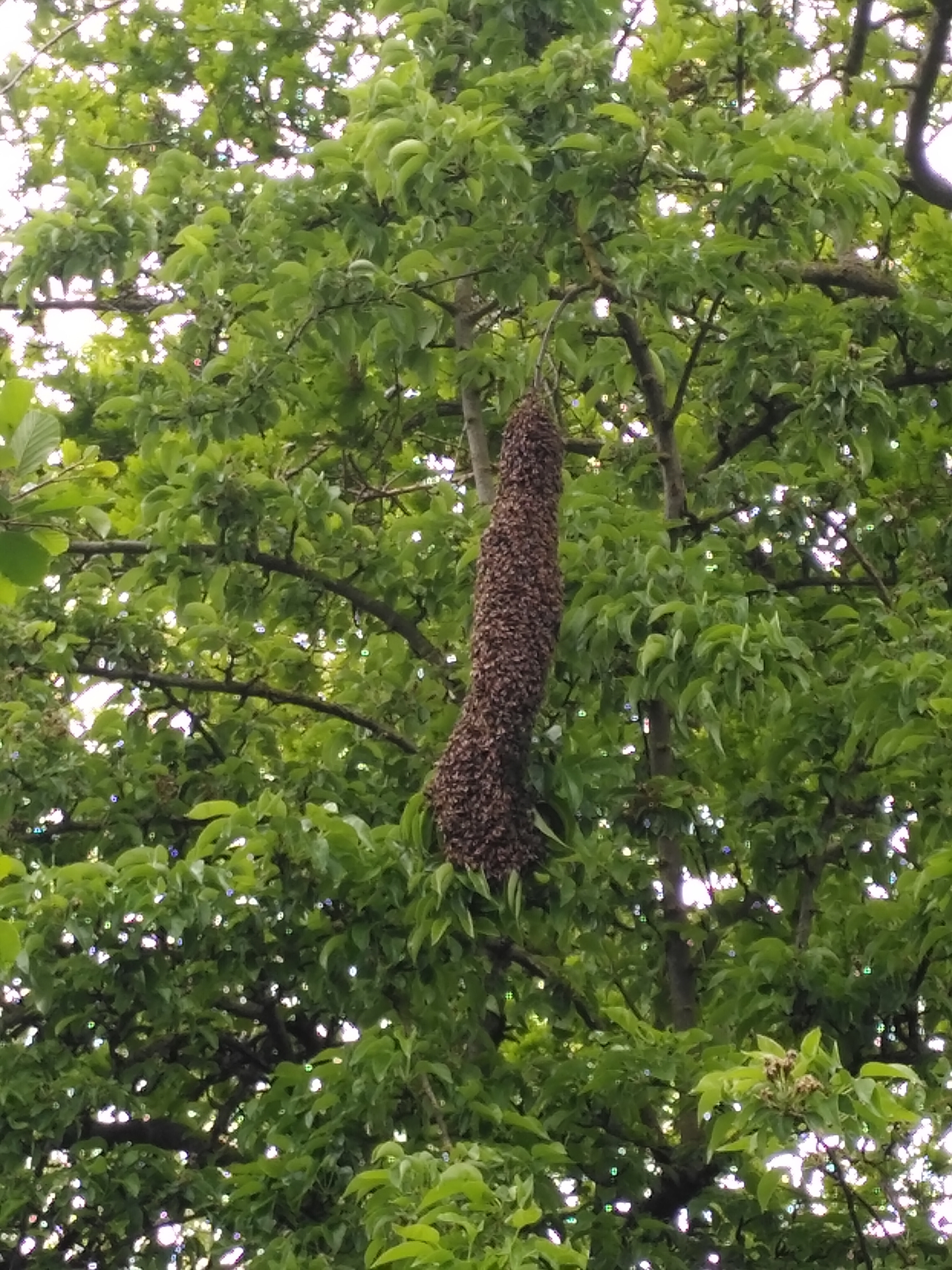
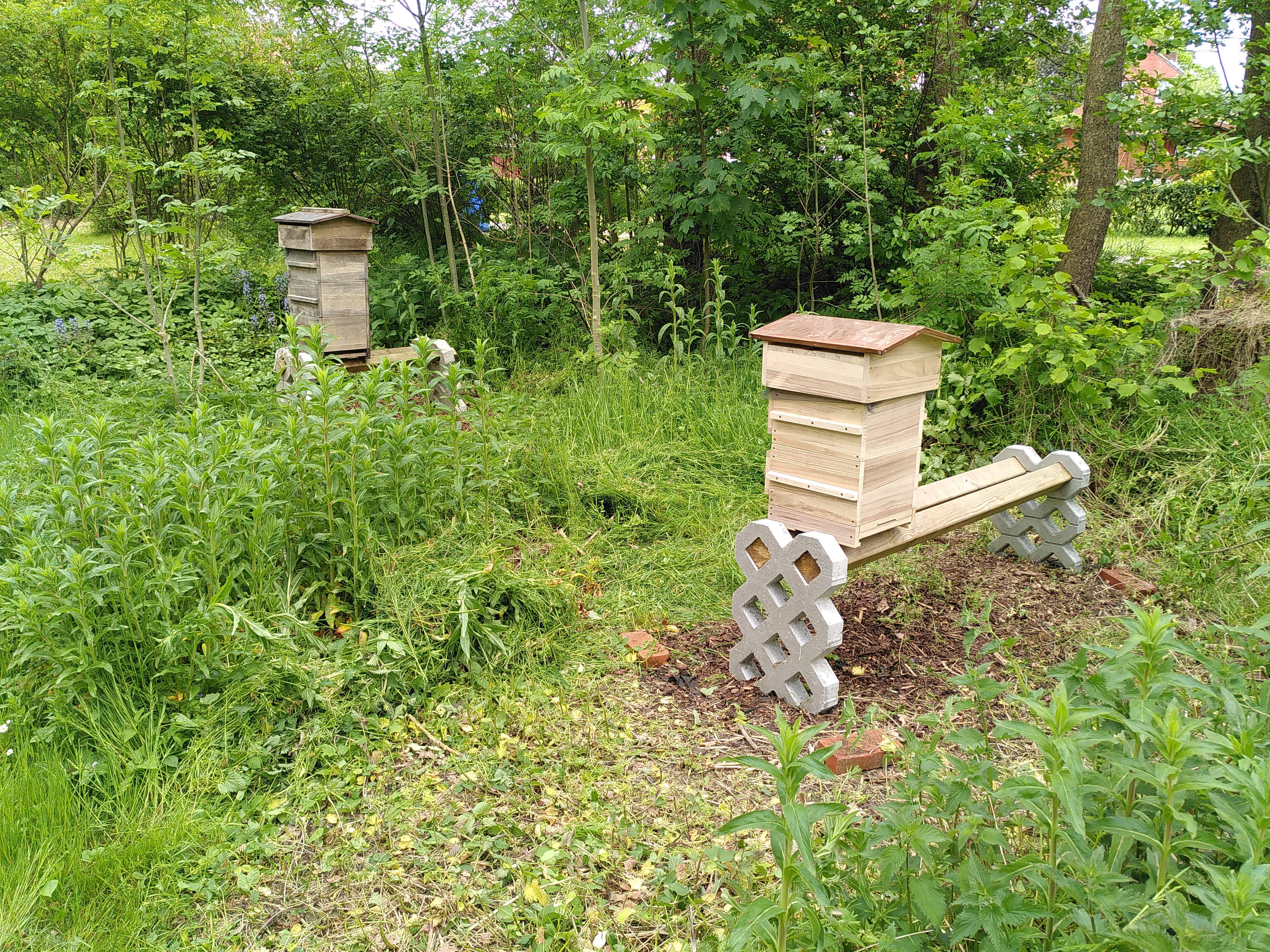
Der Schwarm
Da ich das Schwärmen nicht unterbinde, war es wieder so weit. Der Schwarm hängt an fast exakt der gleichen Stelle wie letztes Jahr und ist kaum zu erreichen. Dieses Jahr haben sich die Damen nur neun Tage länger Zeit gelassen ...
Das neue Zuhause steht, und jetzt hoffe ich, dass sie den Weg selbständig finden werden.
#imkerei #imkern #beekeeping #bee #bees #warré #warre #ownwork #biene #bienen #bienenhaltung
One person like that



